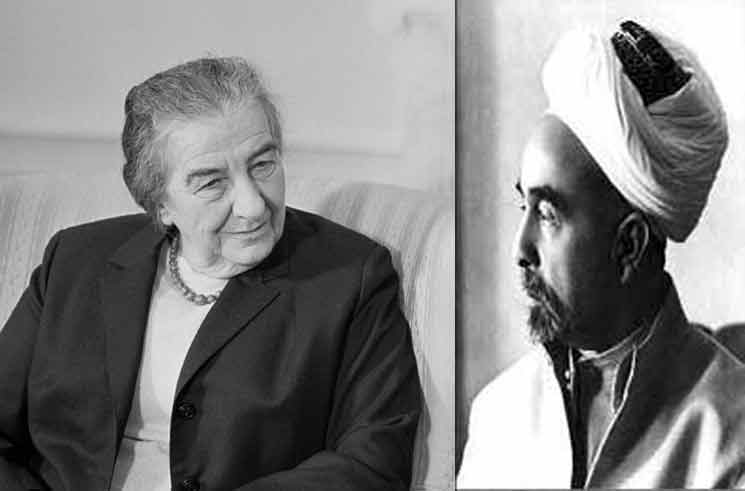Analysts fear that at the current growth rate, the world population will cross the mark of 10 billion in just a few years from now. Obviously, the availability of the resources necessary to sustain the population will gradually go on diminishing.
At the same time, extravagant and improvident use of resources, wastage due to carelessness at various levels and many such reasons will be responsible for the available resources to go on further diminishing.
Besides, considering the problems like ‘global warming’, nature too is gradually turning more adverse. Thus the need for frugal use of the available resources is expressed;
And when it comes to ‘efficient use of available resources’ the foremost example cited is Israel!
We have already read about the adverse conditions, both human and natural, that modern-day Israel faced at the time of its birth. When newborn Israel took its first step, even a task like farming faced harsh conditions like scanty rainfall and subsequent drought as well as scarce availability of arable land.
Research began in all sectors for frugal and astute use of available resources as also to maximize the output using minimum resources, and ‘Agricultural research’ was an important area for this.
‘Agricultural research’ in Israel developed due to the joint and coordinated efforts of the Israeli government, scientists, agricultural experts, farmers and agri-businesses. Consequently, today, Israel is considered a world leader in agricultural research and development. Using the research, Israel ensured that the growth was not just quantitative but qualitative as well. This has helped in developing new varieties of trees and crops which are better in taste, nutrition and characteristics compared to even their original strain. Moreover, hybrid seeds give higher productivity. Also, many of the hybrid agro-products have a shelf-life greater than their original breed.
In addition, research also happened in the methods of cultivation. Considering that rotating between two crops rather than growing just one throughout the year (monocropping) helps maintain the soil fertility, the Israelis took to the practice of crop rotation and started cultivating others crops as well that sustained the respective local environments. Also, to increase the soil fertility and maximize the yield, research was conducted into the concepts like ‘soil conditioners’ (the substances that are added to soil to improve the soil qualities), ‘drip irrigation’ and many related areas. Of course, the factors considered had to suit the type of local soil.
When a particular agricultural season like winter ended, the ‘greenhouses’ would be used to cultivate flowers, fruits and vegetables in demand in the European markets. These greenhouses are structures made chiefly of material such as glass, etc. in which temperature and other conditions required by plants are regulated).

The agricultural research, of course, helped. The quantitative increase in farm production helped Israel nationally to satisfy the hunger of its people. At the same time, the qualitative improvement helped it internationally to increase its exports and earn foreign exchange.
The Israeli tomato is an example of this. These tomatoes are considered good to taste, and their yield is also higher. The credit for this goes to agricultural research. These tomatoes are in demand across the world. But, interestingly, that the cost of seeds that could produce one crate tomatoes is ten times as compared to the one crate of tomatoes itself. Such research-modified Israeli agro-products have high demand across the globe, and the sale of such products brings in good revenue for Israel.
At the centre of the agricultural research is the ‘Agricultural Research Organization’ or the ‘ARO’. In 1921, even before Israel achieved independence, the ‘Agricultural Experiment Station’ was established, which later emerged to form the ARO.

The ARO not only makes the results of newer researches available to the farmers, but it also remains in constant touch with them and collates data about soil quality, atmosphere, etc. at every location. Accordingly, it advises farmers on environment-friendly practices of farming, the crops to be cultivated, cautious use of water, techniques of storage of agricultural produce, use of seeds and pesticides, keeping in touch with the markets, etc. Specifically, the newly created agrarian communities need advice from scratch.
The ‘ARO’ supplies agricultural products to local markets and also works to develop exports so as to increase farmers’ income. For this, the farmers are provided with information like updated market rates of agricultural products at various places as well as the standards to be followed to export agro products to a particular country.

However, this is a two-way process; the farmers, too, can express their opinions. It provides them with an opportunity to present their newer concepts while the ARO conducts research on them.
To minimize the wastage of water, the technique of ‘precision agriculture’ has been developed. Under this, a farm is not watered indiscriminately, but drip irrigation is used to ensure that the water is released only for the roots of a tree or a plant and that too only in the necessary quantity. The quantity of water released is determined on the basis of the type of the soil, and the daily climate and the watering is done using an automated computerized system.
This article is just a slight introduction to Israeli agricultural research! Today, based on this, Israel is self-sufficient or very close to it in food production.(To be continued…)




















